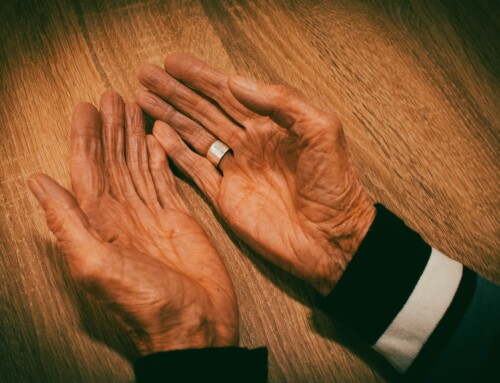One of the most difficult and impactful events in an individual’s life is the death of a husband or wife. This is true regardless of age, but can be especially life altering when it is a senior citizen who has lost a long-term spouse. This loss can be truly devastating for those who have lived the majority of their life with one person. Every facet of life was interwoven with the other person, and therefore the loss is experienced in every aspect of their day. Grief can manifest in diverse ways when someone loses a long-term spouse – not only emotionally, but physically.
The accepted stages of grief will be experienced in the same way no matter how old (or young) you are. An elderly individual may have trouble sleeping, difficulty concentrating or focusing and a loss of appetite after losing a long-term spouse. .

Everyone copes with grief in a different way. Individual coping mechanisms are able to assist when someone loses a spouse; but there are some general statements which we can make about most people’s journey.
Watch Their Health: While grieving, basic daily activities such as eating and sleeping often fall by the wayside. If the surviving spouse always cooked for the other, they may lose the desire to cook for themselves. Eating a meal alone seems too depressing and painful. People dealing with loss often just “graze” or snack. You can ensure your loved one stays healthy during this time by providing them with healthy, easy and delicious snacks. You may also wish to meal prep with them weekly to ensure that they have nutritious food in the refrigerator when they are hungry. Sleeping can also be a problem, as they slept next to someone else for many years. Sleeping alone can be very disorienting and confusion and create stress – and even fear. If your loved one i suffering from lack of sleep, you may want to consult with a physician about safe sleep aids.
Keep Everything Simple: After facing the loss of a long-term spouse, major adjustments of any type can be too overwhelming for seniors to accept. Surviving spouses should allow themselves the opportunity to contemplate, heal, and make choices about what is best go forward. If one of your parents is suddenly alone, don’t make assumptions about where they want to live. While a move to your home or into an assisted living facility might be prudent, talk to them about how they feel so they can choose for themselves.
Reach Out and Find Purpose: Acts of generosity and efforts to help others can help significantly in the grieving process. These actions provide an individual find a new purpose in life and keep a sense of perspective. When their spouse passes, fulfillment can escape a senior citizen, but helping others does wonders to raise spirits and help others to feel love and friendship.
Seek Out New Hobbies: If your loved one has a hobby or talent, especially if they haven’t paid attention to it in years, encourage them to pick it back up again. Getting involved in activities they love, especially if in a group environment such as a class, can help to alleviate pain and isolation that idleness can inspire.
Talk Openly About It: Different people grieve differently, with some going inward and others looking for some socialization. All grieving is personal and authentic and moves an individual towards some closure, but those who tend to be more introverted in their grief should look for someone to talk to. Expressing our emotions is healthy and can help to process through the grief process. A grief support group facilitates a widow or widower to process their feelings among others who know exactly what they are experiencing.
The most important thing to remember is that healing in possible.
At A Banyan Residence, we provide caring and compassionate facilities for seniors in The Villages – whether you need assisted living or memory care services, call us today.







